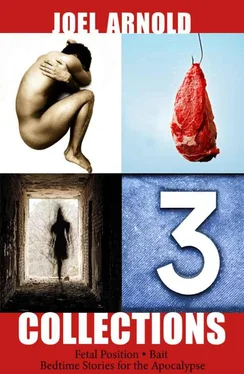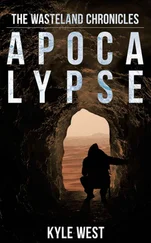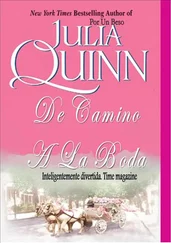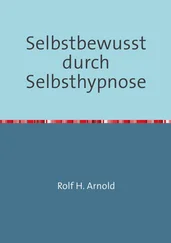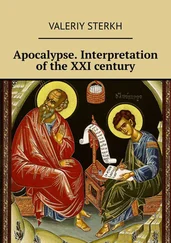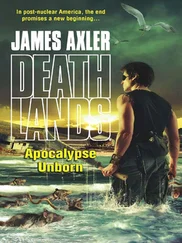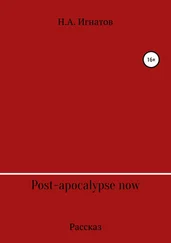He didn’t sleep, didn’t eat, only got up reluctantly — joints groaning, muscles stiff — to use the bathroom. Days went by. He found himself shaking, sweating, his skin itching. He forced himself to eat. The floor around him piled up with garbage, scraps of fabric and thread. He ignored the growing stink of rotting food that filled the air.
Finally, he had to rest. Shaking, trembling, tears brimming in his eyes, he lay on the couch in the living room, not caring about getting its surface coated with the filth that covered him. He stared open-mouthed at the flat white ceiling until he fell asleep.
He dreamed of Mary, of her quilted form rising up from his worktable, bits of untrimmed thread and fabric poking out from her ragged seams. She came to him. Straddled him. Unblinking. Un-emotive. A dumb thing constructed of rags, poorly stitched, bits of batting peaking out through jagged holes in her body. But then her mouth opened, her eyes blinked, and she looked at him, really looked at him, into his eyes, and whispered, as if waking from a long, deep sleep, “Pearce? Honey? Is that you?”
The materials he used; moss, grass, dirt, tree bark, mud, feathers, cotton, wool, satin, silk…
A week passed. His fingers moved nimbly, as if they were separate entities. His work spread like a fever over his lap.
Leaves, fingernails, hair, blood, sweat, Mary’s old clothes, her perfume…
It slowly took shape.
Her shape.
He began to recognize her in it, in the form, the design. This recognition propelled him, his fingers moving faster, while the rest of his body seemed to melt into the heavy, hot atmosphere around him.
Large black circles formed under around his eyes. He was constantly thirsty, constantly hungry. But he mistook this for longing, for the anticipation of that which was nearly complete.
He put down the needle Eugenia had coughed up from her very own lungs, that feather, now worn to a nub. He took a deep breath. His skin burned with sweat and patches of rash.
There was one more step.
He gathered up all of the pictures of Mary he could find. Wedding pictures. Vacation pictures. The annual Christmas pictures they mailed to their relatives and friends. He tossed them all in a metal trash can. Doused them with lighter fluid. This was hard — the last vestiges of Mary, the last images, but Eugenia had said this was the most important step.
He flicked a wooden match against his thumbnail and felt it pop into flame. He hesitated, standing in the garage bare-chested, in underwear that hadn’t been changed for a week, the light of the match spreading deep pools of shadow throughout the garage’s interior. The photographs in the can winked back the yellow light. Mary’s smile was the last thing he saw before letting the match drop. The burst of fire was brief and hot. The pictures caught, burned, the stink of melting Polaroids making Pearce’s eyes water. Soon, the contents of the trash can merely smoldered. It was the ash he needed. The ash of her image.
His work was done. He sat on the edge of his bed, staring at the thing (no, not a thing — it’s Mary, damn it, it’s Mary!) he’d created. She lay on the bed as if sleeping, a rag-doll cadaver with obsidian eyes aimed blankly at the ceiling. Even though she was made of cloth and moss and ash and so many other bits and pieces, she looked life-like. He waited. Waited for her to sit up and take him in her arms. He had to believe she could. Without that belief, she was nothing but an it, nothing but a human-size doll, limp and cool with rough needle holes visible in her skin.
He had to believe.
He sat there watching her. Believing.
Seven hours passed. He’d barely moved, barely blinked.
What had he done wrong? What had he left out?
Her eyes.
Where was the shine in her eyes? Where was the life? They stared back at him, the sclera a dull silk matte, the pupils opaque and blind. Was this what he’d worked so hard at? This lifeless thing? She was no more than a — a doll .
As the sun dribbled through the bedroom window in a growing yoke, the squawk of a blue jay penetrated the thick, cotton haze that had fallen upon his mind. He stood and walked stiffly to the window, squinting, and saw the jay sitting on the branch of a silver maple.
Maybe Eugenia hadn’t told him everything. Maybe she didn’t want him to succeed in this — endeavor .
His heart tapped against his ribcage.
His heart. Infarcted .
A piece of it dead.
But what of a heart that’s all dead? What of a heart that’s not even there?
He remembered the wild thing inside Eugenia’s ribcage when she’d shed her skin, banging back and forth as if trapped in a cage. Was that what gave her life? Kept her alive?
The jay squawked angrily. Pearce loaded his rifle for the first time since his heart attack.
Questions pierced his mind as he crossed the street carrying his rifle.
He knocked. Eugenia answered, an appliqué of fear stitched across her face. He pushed her back and entered.
“What am I missing? What aren’t you telling me?”
“You are not pleased?”
“Tell me what’s missing. Why isn’t she alive?”
“Is it wise to play God?”
He grabbed a fistful of her chest. Felt frantic movement inside. “What’s in here?”
She didn’t answer, only watched him, her eyes sucking in the light of the room.
He stepped back. Pointed the gun at her face.
She only stared at him, her chest bulging in a frantic rhythm.
Pearce fired. The bullet pierced the fabric of her face like a blunt, angry needle, threading a path of emptiness through her delicate skull. She collapsed in a heap. Her insides sizzled and smoked.
Pearce squatted over her. Slid his deer-gutting knife from its sheath. With practiced skill, he cut a slit in her chest from neck to belly. He reached in. Felt something move inside. He gripped it and pulled it free.
It was coated with an oily substance. Speckled in black and white. The answer had been all around him. In all of Eugenia’s quilts. The image of the bird. Black and white bits pieced together in its shape, infused in each of the designs.
Its wings unfolded in Pearce’s hand.
It was the size of a sparrow, its black and white body covered in sores and tumors. Its right eye was welded shut with scar tissue, and oozed something thick and green. Its other eye blinked open and stared at him. A quiet, wet squawk issued from its beak.
That night, he finished stitching shut the new incision on Mary’s chest. The bird inside thumped and squawked in its new home. Pearce lay beside Mary, waiting. There was nothing more to do. His fingers, despite the thick calluses, oozed blood from his last days of frenzied work, leaving crimson kisses on his bed sheets. He fell asleep.
It was a long time before he awoke. Night had come dark and black outside the frosted windows. His eyes were heavy, and it took many false starts before they would open. When they did, when they filled with the soft light of the bedside lamp, he saw that Mary still lay there, a lifeless pile of cloth and thread. He reached out to her. Ran his hand down along the fabric of her cheek, the rise of her ash-filled breasts. Down along her stomach.
His heart screamed in his chest.
The bedroom spun.
He breathed in quick, shallow gasps.
Slowly, with great effort, he sat up and leaned over the Mary-thing, laid the side of his head on her stomach, and felt the thing which grew inside of her belly kick the side of his face.
Even through the layers of material, he heard that its heartbeat was strong.
Day has come. Snow swirls in the street, adds to already smothered lawns, whips past jack-o-lanterns shellacked with ice. Piles of bagged leaves sit snow-covered on curbs, while ornamental scarecrows stare at the ground, ice-sickles hanging off their faces. The smell of lawn clippings, tulips and marigolds are all memories so far distant that maybe they never existed at all.
Читать дальше
